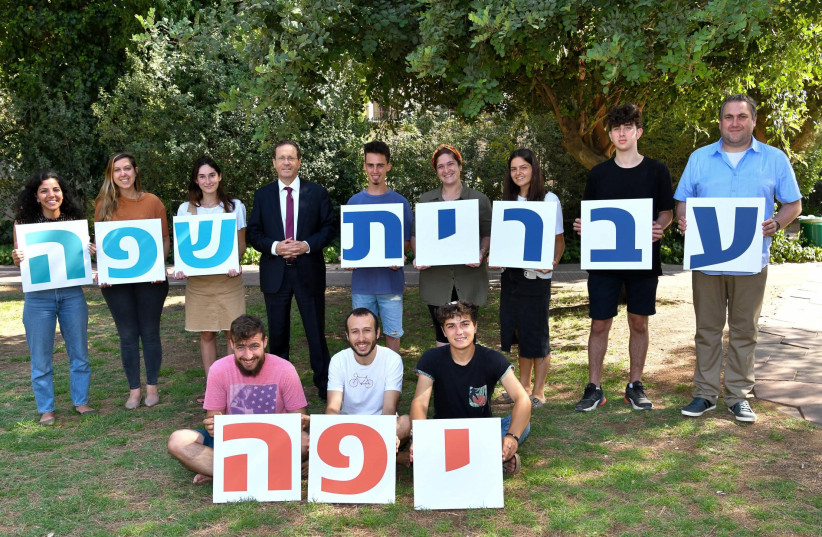I recently spoke with some American millennials, self-described proud Jews, a small sampling of the youth who represent our future, and asked them a few questions to gauge their interest in current events and world Jewry.
“What’s your source for news?” I asked.
Without missing a beat, they quickly and unequivocally answered: “Instagram.”
That’s the society in which we live, where news is either being delivered in a snapshot, or a 15-second clip. Anything more, and young adults have already moved on.
Curious, I asked them if they knew what the Jewish Agency is or does, and they quickly answered no. I believe if I asked the majority of Jews of any age, in any country, the answer would, unfortunately, be the same.
Much of the Jewish world doesn’t fully understand the critical role the Jewish Agency plays in programs like Birthright and Jewish education initiatives; in the Diaspora-Israel relationship, sending shlichim from Israel to countries around the world; immigrant absorption, social services, and more within Israel. The lack of understanding on the part of world Jewry certainly explains why there is no international conversation surrounding the upcoming and extremely critical election of the Agency’s next chairman.
I was honored to be invited last year to join the Agency’s Board of Governors as a representative of the World Zionist Organization. And while obviously far more familiar than these young Jews, I must admit that until then, I did not completely appreciate the scope and breadth of the Agency’s work, its impact, or level of dedication and professionalism. Now that I work within, I also appreciate just how crucial is this upcoming chairman election for world Jewry.
As 4,000 Gaza rockets rained down on Israel again this spring, we witnessed a disturbing rise in anti-Israel attacks, and subsequently, an even more disturbing rise in physical and verbal attacks on Jews around the world.
I have written much on the correlation between the lack of Jewish literacy and the recent increase in antisemitism, which our Judaic illiteracy as a people prevents us from fighting. Even worse, the antisemitic rhetoric we see daily on social media platforms gets an assist from our own young Jews who feel the need to join the cacophony as a necessary part of being “woke.”
We convened to address its connection to this newest anti-Jewish escalation, and what I experienced in that meeting was a rare and powerful consensus that sadly tends to happen only when we Jews are threatened by the outside world.
As Ambassador Erdan opened up the floor to comments, I brought up Israel’s response to the recent conflict in Gaza. I told him that while we may have conflict, we lost the war for hearts and minds on social media.
Rabbi Rick Jacobs, president of the Union for Reform Judaism, said that the only point he disagreed with was not that we lost the war online, but that we didn’t even show up for battle.
David Harris, CEO of the American Jewish Committee, strongly agreed, and confirmed the AJC changing strategy, as it recognizes the same problem.
In a survey released on Tuesday, 9% of Jewish voters agreed with the statement, “Israel doesn’t have a right to exist.” But among Jewish voters under 40, that number rose to 20%. One-third of younger voters agreed that Israel is committing genocide, a position that even human-rights lawyers who are critical of Israel say is extreme; and more than one-third of this younger sector agreed that Israel is an apartheid state.
We have begun – some more reluctantly than others – to recognize that the strategies of the past are tired and no longer relevant, and will certainly not bring the next generation of Jews into the conversation. What’s needed is a bold and creative reimagining on a fundamental level.
Because of the scope and reach of this unique position, the individual most uniquely positioned to engineer this radical shift will be the next Jewish Agency chairman. In addition to the obvious qualifications of being a charismatic and intelligent communicator, this individual must possess a keen understanding of our young Jews: learning where they are, and shifting the conversation to bring them in. And, as our rare moment of unity during that New York meeting brought to bear, we need a better understanding of social media.
UNTIL TODAY, the Jewish Agency has taken a business-to-business (“B2B”) approach, managing – as the traditional umbrella organization – the “cacophony of Jewish unity/disunity,” as former chairman Natan Sharansky and Gil Troy brilliantly discuss in their recent book Never Alone.
That management has by and large taken place through very established institutions. But that formula for communication will no longer work, since we know that the majority of Jews around the world are not affiliated with established Jewish organizations. The Pew study only confirmed what we in the Jewish organizational world already experience: the younger the Jews, the less affiliated they are with institutional Judaism on any level, in any form.
Corona didn’t create the switch from interpersonal dynamics (institutional affiliation) to online engagement (social media,) it merely intensified pre-existing trends. The Jewish Agency must therefore now shift to a business-to-consumer strategy (“B2C”), engaging directly with Jews around the world. This can be accomplished through social media, but only if we are determined to break from the status quo and start again.
As an example, Aish recently helped bring 25 young Israelis – future leaders – to New York on the Triumph Leadership Program, a grassroots, peer-to-peer initiative. These young Israelis met with community leaders, entrepreneurs, mentors, and their American peers.
In partnership with the WZO, the program is just one example of peer-to-peer interaction that allows us to attract, engage and empower our future leaders, and help them forge a relevant and compelling Jewish identity that elevates them and the world. This works precisely because it is a peer-to-peer initiative, rather than a large-scale institutional bureaucracy.
Why is the role of the new Jewish Agency chair position so critical today? Beneath the mounting crisis of the weakened Israel-Diaspora relationship among young Jews lies an even more disturbing reality: the lack of any Jewish identity. If we want today’s younger generation to have a relationship with Israel and world Jewry, we need them to want to identify as Jews in the first place. And if we want them to engage with Judaism on any level, then the global Jewish community will need a reboot.
Within the “crisis” of a lack of institutional affiliation lies the next Agency chairman’s opportunity: to reach every single Jew on the social media platforms where they are connected. The crisis of disconnection ought to be our wake-up call to bring a revolutionary change, one that helps us usher in a new, redefined, powerful and relevant Israel-Diaspora/Jewish identity conversation that allows for diversity and disagreement, while successfully galvanizing our communities, our institutions... and our disenfranchised.
I am encouraged by Yakov Hagoel’s leadership at the helm as interim chairman and chairman of the search committee, as he has admirably fought antisemitism around the world throughout his career. It is critical that all of the search committee members conduct serious and thoughtful vetting for the Agency chair appointment.
We – the entire Jewish world – have a responsibility to learn from our failures, from the drop in Jewish engagement, from the polarization of our own people, and the rise in antisemitism, and respond by actively choosing a leader who is above the political fray, and who is willing to usher in a new era of communication and engagement.
Our future depends on it.
Rabbi Steven Burg is CEO of Aish and a member of the Jewish Agency’s Board of Governors as a representative of the World Zionist Organization.

